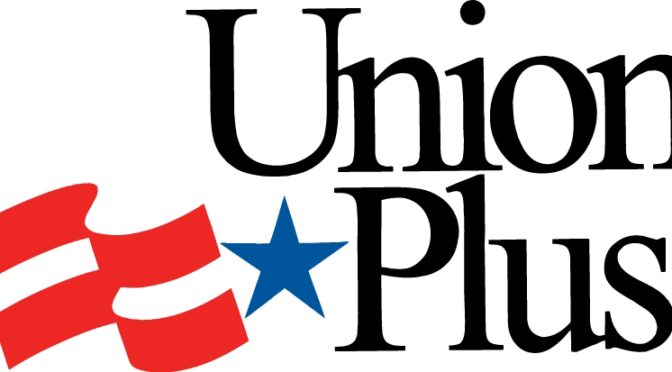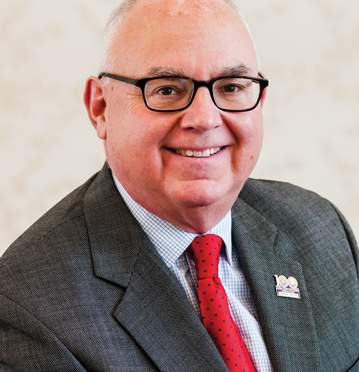On September 6, Hurricane Irma passed just north of Puerto Rico with ferocious winds of 185 miles per hour as a category 5 hurricane, then roared past Cuba and ashore onto the US mainland Sunday, September 10, battering the entire state of Florida with an enormous reach of more than 400 miles. Irma made landfall on the southern tip of Florida as a category 4 hurricane with sustained winds in excess of 130 miles per hour, causing massive flooding and storm surges, resulting in more than five million power outages, and creating catastrophic tornadoes. The fury of Hurricane Irma occurred on the heels of Hurricane Harvey, which made landfall August 25 on the Texas Gulf Coast, between Port Aransas and Port O’Connor, Texas, just east of Houston and Galveston as a category 4 hurricane as well, marking the first time in recorded history that two hurricanes as powerful as category 4 made landfall in the same year, in the United States.
These disasters have hit AFM members hard. Hurricane Harvey displaced more than one million people along the Texas Gulf Coast. The storm affected all Houston Arts District organizations, flooding Jones Hall, the home of the Houston Symphony. It totally devastated Wortham Center, which hosts performances by the Houston Ballet and Grand Opera. “No one knows when the opera and ballet can get back in there,” Local 65-699 (Houston, TX) President Lovie Smith-Wright reported.
The Houston Symphony has managed to continue operations by moving concerts to other locations around town, pending Jones Hall repairs. The homes of dozens of Houston AFM members were totally destroyed. In South Texas and across Florida, scores of freelance musicians who work steady and short-term casual club dates and single engagements in restaurants and nightclubs have suffered loss of work.
Hurricane Irma’s trail of wind and storm surge destruction in Puerto Rico, the Florida Keys, Miami, Naples, and up the east and west coasts of Florida resulted in a coast-to-coast pummeling. Officials are still trying to assess the extent of damage. A stunning
13 million Florida residents were without power for days. Irma’s parting blow to Florida, as it moved on to Georgia and South Carolina, was record flooding in the Jacksonville area. Together, Irma and Harvey may have caused up to $200 billion in damage in Texas and Florida, according to Moody’s Analytics.
In one bit of good news, Local 389 (Orlando, FL) Secretary Sam Zambito reported that Disney advised that it will pay its Orlando theme park employees, including musicians, for all shifts cancelled as a result of the storm. Bravo Disney!
How You Can Help
In an effort to respond to the epic devastation and to help affected AFM members and their families residing in federal disaster areas in Puerto Rico, Florida, and Texas who are fighting to recover from one of the most destructive US natural disasters in history, we have established the AFM Hurricane Relief Fund. It’s more important than ever that we stand together and help our brothers and sisters. Please open the afm.org home page and click the “DONATE HERE” link.
If you prefer to write a check, send it to:
AFM Hurricane Relief Fund
American Federation of Musicians,
1501 Broadway, Suite 600
New York, NY 10036
Please note: contributions to the AFM Hurricane Relief Fund are not tax-deductible.
How to Get Help
If you are a victim of Hurricane Harvey or Irma, here’s how you can get help.
AFM Hurricane Relief Fund
Download the instructions and application for hurricane assistance here:
http://www.afm.org/hurricane-disaster-
assistance/
The Actors Fund
Musicians affected by Harvey or Irma should contact The Actors Fund for information on emergency financial assistance and other resources.
For Harvey assistance: The Actors Fund’s Los Angeles office at intakela@actorsfund.org or 323.933.9244, ext. 455.
For Irma assistance: The Actors Fund’s New York office at intakeny@actorsfund.org or 212.221.7300, ext. 119.
AFL-CIO Union Plus
Musicians who have been impacted by Hurricane Harvey or Irma, and who are participating in certain Union Plus programs may be eligible for financial assistance through the Union Plus Disaster Relief Grant program. Please visit the Union Plus Disaster Relief Fund at unionplus.org/disaster to learn more about Union Plus benefits and eligibility requirements.
Texas AFL-CIO
Union musicians affected by Harvey may apply for assistance from the Texas Workers Relief Fund established by the Texas AFL-CIO here: http://www.texasaflcio.org/relief/
If we stand together and act now to take care of each other, we can make a difference. Please donate to the AFM Hurricane Relief Fund today by visiting AFM.org and clicking “DONATE HERE.”












